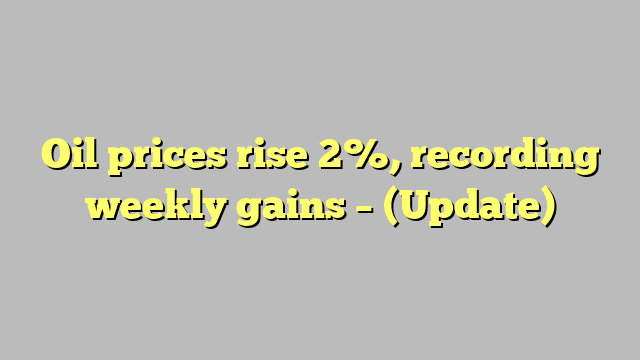Oil prices rose by 2% at the end of trading today, Friday, July 21 (2023), to achieve gains for the fourth consecutive week, amid hopes for a recovery in demand.
This comes at a time when the markets are assessing the prospects for economic stimulus in China after weak economic data and the decline in oil stocks in the United States and cut supply from the main producers.
Baker Hughes data showed that the number of oil rigs in the United States decreased for the sixth week in a row, reaching 530 rigs.
Oil prices today
At the end of the session, the price of futures contracts for Brent crude oil – delivery in September 2023 – increased by 1.8% ($ 1.43), to reach $ 81.07 a barrel, but it achieved a weekly gain of 1.5%.
West Texas Intermediate crude – for September delivery 2023 – rose 1.9%, to record $77.07 a barrel, while its weekly gains increased by 2.3% ($1.65), according to figures monitored by the specialized energy platform.
And oil prices ended their trading, yesterday, Thursday, July 20, on the rise, exceeding the losses it suffered in the previous session.

Oil price analysis
China’s weak economic numbers kept a lid on prices during the week; This week, the world’s second largest oil consumer reported disappointing GDP growth for the second quarter; This increases the possibility that the economy will not meet the government’s annual growth target of 5%.
However, sentiment in commodity markets has been revived on hope that the central government will implement more stimulus measures to support the economy.
The National Australia Bank analysts said, in a note, that the rise in crude oil prices came “in a positive commentary on Chinese stimulus and examining the effects from the stronger US dollar index.”
On Wednesday, Beijing announced that it would lay out plans to stabilize growth in 10 sectors, as well as increase support for private companies.
oil supplies
Oil prices received support from recent data, including lower-than-expected inflation and moderate job growth, which convinced many investors and analysts that the July rate hike by the Federal Reserve will be the last in the current tightening cycle.
Supply fundamentals supported market sentiment; Analysts from ANZ Bank said in a note to clients: “Evidence of supply cuts from Saudi Arabia and Russia drove the recovery in oil prices this month.”
In early July, Riyadh announced the extension of a voluntary production cut of 1 million barrels per day until August, while Moscow said it would cut exports by 500,000 barrels per day next August.
ANZ noted that “tightness is already showing in stocks,” Reuters reported.
The Energy Information Administration said on Wednesday that US oil inventories fell last week, supported by a jump in crude exports as well as increased refinery utilization.

Leave a Reply